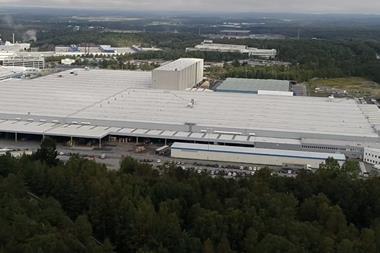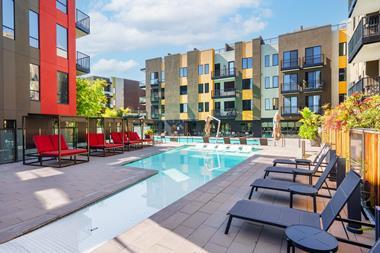A changing market landscape with rising interest rates and evolving post-pandemic trends is prompting investors to seek out resilient real estate sectors, according to the CIO of Swiss Life Asset Managers UK.

Speaking to IPE Real Assets at MIPIM, Tim Munn highlighted the continued strength of logistics, healthcare and residential sectors, while acknowledging challenges in office and retail.
Pointing to Swiss Life AM’s strong positioning in these areas, with established teams and a growing presence in key European markets, Munn said “two key trends are shaping the market – continued post-pandemic shifts and higher interest rates”.
While the latter presents challenges, investor focus has shifted towards resilient asset classes backed by strong structural trends. Sectors like logistics, healthcare and residential are performing well due to these underlying trends.
“Inversely, offices and shopping centres face difficulties. However, as a result of repricing, there are potential opportunities in these sectors as well.”
He said Swiss Life AM was well positioned due to its strong teams in logistics, healthcare and living spaces.
Swiss Life AM manages and administers an CHF85.4bn (€88.7bn) European real estate portfolio, comprising 29% office, 32% residential, 13% retail, 14% industrial and logistics real estate with hotel and healthcare properties accounting for 3% each.

“We have significant exposure to residential markets in Switzerland, France, Germany, and a growing presence in the UK. This allows us to leverage our asset management and transaction capabilities in these key areas to uncover value.
However, Munn said it was important to note that the office market required a nuanced approach. “While overall vacancy rates are rising, opportunities exist for creating high-end workspaces that meet tenant needs for functionality, ESG compliance, and a positive occupier experience,” he said. “This can unlock strong leasing potential in these assets as there is a shortage of high-quality sustainable buildings with excellent amenities.”
City centres with “strong transportation links and vibrant communities” are well suited to the hybrid working model, offering the connectivity and collaborative experience that tenants increasingly value, he added. “While I wouldn’t name specific cities, any location with these characteristics holds promise.”
Regarding Swiss Life AM’s approach to sustainability practices, Munn believes secondary cities and suburban areas may face greater challenges compared to larger, well-connected and environmentally conscious urban centres that benefit from high levels of connectivity and amenities.
Swiss Life AM integrates sustainability practices throughout its investment strategies and operations, Munn said, adding that “we have a strong, 25-person team dedicated to this approach, focusing on both portfolio and individual asset level performance. Our efforts encompass managing carbon reduction across the portfolio, mitigating stranding risk and active stewardship.
“We actively seek accreditations that demonstrate the sustainability of our assets, ensuring they meet future occupier demands and retain marketability and liquidity. We continue to achieve excellent GRESB results for our products and portfolio mandates, all of which submitted achieved green star status in 2023.”
The asset manager’s insurer parent Swiss Life this week issued the group’s 2023 results in which it recorded increases in net profit, cash remittance and dividend but said the real estate market environment dampened its fee result.
It said the 13% drop in fee results in local currency compared to the previous year was due mainly to a “subdued real estate market environment in Germany and France and thus to lower revenues from project developments and real estate transactions” in the 2023 financial year.
To read the latest IPE Real Assets magazine click here.























